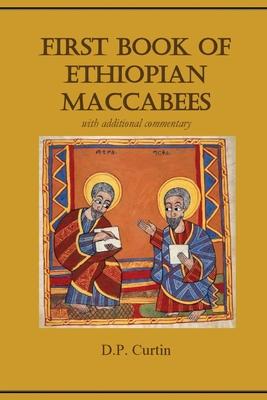Meqabyan, also referred to as Ethiopian Maccabees or Ethiopic Maccabees (Amharic: መቃብያን, which is also transliterated as Makabian), are three books found only in the Ethiopian Orthodox Old Testament and Beta Israel Mṣḥaf Kedus Biblical canon. These books are completely different in content and subject from the more commonly found books of Maccabees in Catholic and Eastern Orthodox Bibles. The account of the "Maccabees" described in these sacred texts are not those of the advent of political dealings of the Hasmonean dynasty of Judea, nor are they an account of the "Five Holy Maccabean Martyrs", or the "woman with seven sons", who were also referred to as "Maccabees" and are revered throughout Orthodoxy as the "Holy Maccabean Martyrs". The Maccabees who are referenced do not correspond to known martyrology and their identity is never full clarified by the ancient author. However, they do assume the familiar moniker of being "a Maccabee", the etymological origins of which remain disputed.

First Book of Ethiopian Maccabees: with additional commentary
Meqabyan, also referred to as Ethiopian Maccabees or Ethiopic Maccabees (Amharic: መቃብያን, which is also transliterated as Makabian), are three books found only in the Ethiopian Orthodox Old Testament and Beta Israel Mṣḥaf Kedus Biblical canon. These books are completely different in content and subject from the more commonly found books of Maccabees in Catholic and Eastern Orthodox Bibles. The account of the "Maccabees" described in these sacred texts are not those of the advent of political dealings of the Hasmonean dynasty of Judea, nor are they an account of the "Five Holy Maccabean Martyrs", or the "woman with seven sons", who were also referred to as "Maccabees" and are revered throughout Orthodoxy as the "Holy Maccabean Martyrs". The Maccabees who are referenced do not correspond to known martyrology and their identity is never full clarified by the ancient author. However, they do assume the familiar moniker of being "a Maccabee", the etymological origins of which remain disputed.